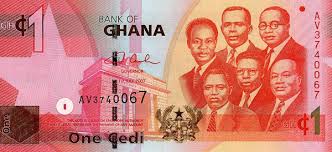Poor academic and infrastructural standards, exorbitant tuition fees, rising levels of xenophobia and frequent deaths of Nigerian students in Ghana threaten to trump perceptions of that country’s educational system as an Eldorado.
And, rather than being the choice destination for quality foreign education close to home that many Nigerian students and their parents hoped for, the former Gold Coast is gaining notoriety as a place where Nigerian students, in search of the proverbial Golden Fleece, become routinely fleeced.
Nigeria loses $1.9b yearly to Ghana
Nigeria loses over $1.9 billion yearly to Ghana on education tourism, according to the Central Bank of Nigeria (CBN).
The question is, what quality of education do Nigerians get from Ghana? Of Ghana’s 76 universities, only a few operate fairly competitive admission curricula criteria that measure up to global standards.
The country’s premier institution, the University of Ghana, Legon; Kwame Nkrumah University of Science and Technology, Kumasi; University of Cape Coast; University for Development Studies; University of Energy and Natural Sciences, Ahafo; University of Mines and Technology, Tarkwa; University of Health and Allied Sciences, Ho; and University of Education, Winneba; are among public universities reputed for quality academic standards.
These play host to some Nigerian students.
Poor academic programmes of private universities
But most of the 67 private universities are a different ball-game. Most run academic programmes of doubtful quality and operate from a one-storey building.
They claim that their teaching techniques are flexible so students may not need to be at lectures, provided they access the course materials on the internet.
One of them, Knutford University, is located in the high-brow East Legon area of Accra metropolis. It operates from a one-storey building that used to be a car shop.
Another, in the Lapaz area of Accra, shares a three-storey building with sundry other organisations, including business centres, salons, and fashion shops.
It offers only two courses in information technology and management studies, is not accredited by the Ghanaian educational authority, and has 200 students, 90 per cent of them Nigerians.
Sikkim Manipal University, located around the Nkrumah Circle area of Accra, is registered as a business, but has been given the franchise to operate in the name of a university based in India.
It offers three courses: information technology, mass communication and journalism, and business management. It awards diplomas, degrees, and masters in the disciplines.
Manipal University’s General Manager, Abhishek Tyagi, claimed that the standard of a university is not determined by its size.
And he drew support from S. Patnalk, Director of Academics at the Mahatma Ghandi University, Accra, who argued that what matters is academic quality, not quantity.
Said he: “When you want to access education, you do not look at the size of the infrastructure. If a student, for instance is not happy, even though it is a big infrastructure, his performance will be affected.
“Although infrastructure is an important component of university education, the most important aspect of any university is the knowledge it impacts.”
Experts criticise bad learning conditions
But experts countered that learning under such objectionable conditions in some of the so-called universities in Ghana impedes learning.
They explain that students need space. For instance, an average classroom should have all the facilities to encourage learning, be properly ventilated, and have a board that uses markers and a projector.
They counsel parents to be selective of the universities they send their children to in Ghana, saying it is fruitless to earn a degree from a private university that limits one’s scope.
Regardless, Manipal, Mahatma Ghandi, and other Ghanaian private universities continue to rely on agents to entice unsuspecting students from Nigeria to register with them. In return, the agents get financial rewards whose value rises according to the number of students they bring.
Exorbitant fees
Last month, a team of agents from the Ghana Telecom University College (GTUC) in Accra was at the Airport Hotel in Ikeja, Lagos seeking to attract Nigerian students with ability to pay in United States dollars.
It offered instant admissions into the GTUC.
The driving objective of most private universities in Ghana is to make money and milk innocent students and parents most of whom, ironically, are Nigerians.
Manipal University, for instance, gives instant admission to anybody with a West African Examination Council (WAEC) result who has a third of the $3,000 it charges per session.
Nigerian medical students at Kwame Nkrumah University of Science and Technology pay $6,000 per session.
State-owned University of Cape Coast charges foreign students $6,000 per session for the least paying faculty and $10,000 for medicine.
University of Legon, another state-owned institution, charges foreign students $5,500 per session for the least costly courses; the privately Ashesi University charges $15,000.
These fees exclude the cost of feeding, accommodation, transportation, and books.
In addition to the high tuition fees, Nigerian students also contend with other layers of fees imposed by the Ghanaian government through its various agencies such as the immigration.
These include $30 charged annually for resident permit and $120 for non-resident National Identity card.
Besides, landlords turn Nigerian students’ search for habitable accommodation into a veritable business opportunity, and commercial transport operators, aware of unavailable students’ buses, hike fares.
Frequent death of Nigerian students
Nigerian parents send their wards to school in Ghana because of regular distortions in Nigeria’s academic calendar because of insecurity in the country where a little child could be kidnapped, a family wiped out in church by Boko Haram, or a bright young man wasted by cultists.
Parents also send their wards to school in Ghana to side-step the rigorous admissions procedure of Nigerian universities, where in addition to the uniform matriculation examination, students may be required to pass other entrance examinations modulated by their universities of choice.
But, the recent spate of murder of Nigerian students in Ghanaian institutions may have dispelled many a romantic illusion about security in Ghana while also hinting of the harsh realities of the living and working conditions of Nigerians in the country.
Godwin Ayogu, a 19-year-old Nigerian social science student at the University of Cape Coast, was recently found lying in the pool of his own blood, murdered on the university campus.
Five fellow students were arrested for allegedly killing Ayogu when he tried to recover money lent to one of them.
Before Ayogu, two other Nigerian students at Knutsford University College, a private university in Accra, assumedly drowned while on an outing with university officials.
In October, Austin Ogukwe, 15, another Nigerian student at Ideal College, a private secondary school in Tema, died in mysterious circumstances.
Double jeopardy
Ironically, the $1.9 billion that 75,000 Nigerian students in Ghana pay far exceeds the annual budget for all federal universities in Nigeria.
What Nigeria gets in return is a double jeopardy: annual loss of $1.9 billion plus a stream of mostly half-baked foreign-trained graduates who only swell the country’s already bloated pool of the ill-educated and unskilled, with all its negative economic implications.
A case of cedi-wise, naira-foolish.















